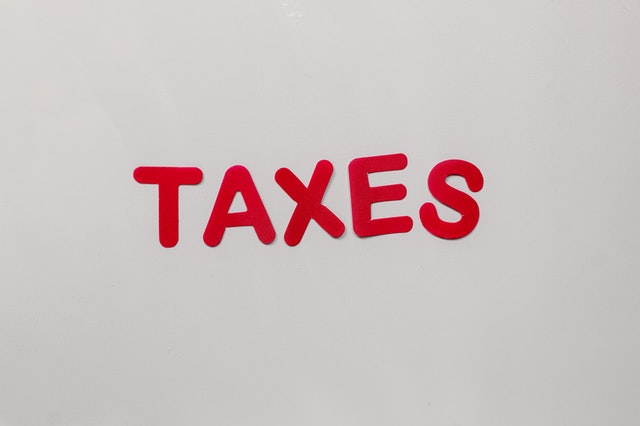Although every year comes with minor changes to the tax code, the last year and a half have been a tumultuous time. Especially when it comes to changes to tax rates, brackets, deductions, and more. In this article, we will discuss some of the major tax changes in 2021, and review their various advantages and disadvantages to tax filers.
2021 Tax Changes
First, there are several key points to understand about taxes in 2021. For as many changes as there have been to taxes, one major thing has remained the same: tax rates are constant for 2021. Retirement plan contribution levels have also remained the same for 2021. Other major points are that tax brackets, ceilings, thresholds, and phase-outs for deductions and credits have increased in 2021.
What This Means For Taxpayers
Now let’s delve deeper into these tax changes and what they really mean for taxpayers. One of the biggest pros of the new tax bill and the CARES Act is that it has raised the standard deduction and simplified charitable deductions for taxpayers. This means more tax breaks for charitable donations.
In the past, filers have had to itemize their deductions to deduct charitable giving. It was a cumbersome process most people did not employ or qualify for. But, the Tax Cuts and Jobs Act of 2017 actually eliminated limits on itemized deductions.
For the 2020 tax year, taxpayers were able to write off up to $300 in cash contributions, even while taking the standard deduction. While we are not talking about a lot of money here, this is obviously an advantage for taxpayers, as it immensely simplifies the process of deducting charitable donations and puts more money in filers’ pockets.
Income Brackets
As previously mentioned, another notable difference in tax policy for 2021 is that income brackets have been raised. This is not unique to 2021 and the pandemic; income tax brackets typically rise every year due to inflation. Overall, these changes to the tax code are a con, as your tax rate may have increased even if your taxable income did not.
The tax brackets for single filers, heads of households, and people filing jointly have all been slightly adjusted. Something that should be noted here is that there is no personal exemption in these tax brackets, as provided in the 2017 Tax Cuts and Jobs Act.
Tax Changes for Retirees
There have also been some changes to required minimum distributions, or RMDs, for retirees. Typically, retirees must start withdrawing from their IRAs and 401ks after age 72 — those withdrawals count as fully taxable income. However, the CARES Act of 2020 suspended these mandatory withdrawals for the 2020 tax year. This gave retirees with flexible enough income not to need to withdraw annually an option to give themselves a tax break.
Essentially, retirees were not obligated to withdraw from the retirement savings accounts in 2020, meaning they had the option to have less taxable income. This is, of course, an advantage to filers, as it will have provided a tax break if it applied to you.
Health & Taxes
Health got much more air time than usual over the past year and a half as a big tax-related topic, for obvious reasons. The most notable was that tax policy has addressed an increased national focus on and concern for health through increased limits for health savings accounts (HSA).
Health savings accounts can be an incredibly useful way to address health and medical concerns. They allow you to contribute to tax-free accounts as long as you have traditional health insurance through a high-deductible plan. If this applies to you, you can get a tax break on contributions to your health savings account now, as well as on your withdrawals from the same account long term.
Of course, there are limits to how much money you can contribute to your health savings account each year. The cap is $3,550 for individual coverage and $7,100 for family coverage. These adjustments to health savings accounts are definitely an advantage for taxpayers. They offer you the option to both contribute and withdraw to your HSA tax-free, thus, theoretically, improving your overall health coverage.
Tax Credits
Another major category of tax code to consider is that of tax credits. As we all know, tax credits are extremely important to filers — even more so than deductions. That is because they can reduce what you owe in taxes.
The most common tax credits are the child tax credit, the saver’s credit, the earned income tax credit, and educational tax credits. In some cases, it’s the income taxpayers have determined which tax credits they are eligible for. The earned income tax credit gives workers credit depending on their family size and income bracket. Note that income amounts per bracket were raised slightly in 2021. The numbers taken into account here are both your earned income and your adjusted gross income.
Family & Child Tax Credits
Many families and individuals who are eligible for the earned income and child tax credits not only get the credit but are also able to get money back in their tax returns. This can make a huge difference in taxpayers’ annual earnings.
Tax credits are, of course, an overarching advantage to filers. Income limits slightly increasing for earned income tax credits is not a pro for taxpayers. However, the idea is that the slight increase simply accounts for inflation and will not do any actual damage to working families.
Saver’s Tax Credit
The saver’s tax credit can be extremely beneficial as well, and is designed to increase retirement savings. Depending on your income — this credit is designed for low to middle-income individuals — you can get a credit of up to $1,000 to put into your IRA, 401(k), or other retirement savings account.
The amount you can put into the account depends on where you fall within certain income brackets. The total possible contribution is $2,000. But depending on your income and tax filing status, you will be eligible to put 10%, 20%, or 50% of that amount into retirement savings accounts. Like the earned income tax credit, these income brackets are up slightly in 2021.
Saddock Can Help Navigate Tax Changes
There is no shortage of reasons to hire a tax advisor. If your financial situation requires anything more than a simple tax return before tax day in 2021, you’re missing out without one. When it comes to managing your money, getting the best professional guidance is certainly worth it.
Get in touch with us here to find out how we can help your specific financial needs.
Sources:



